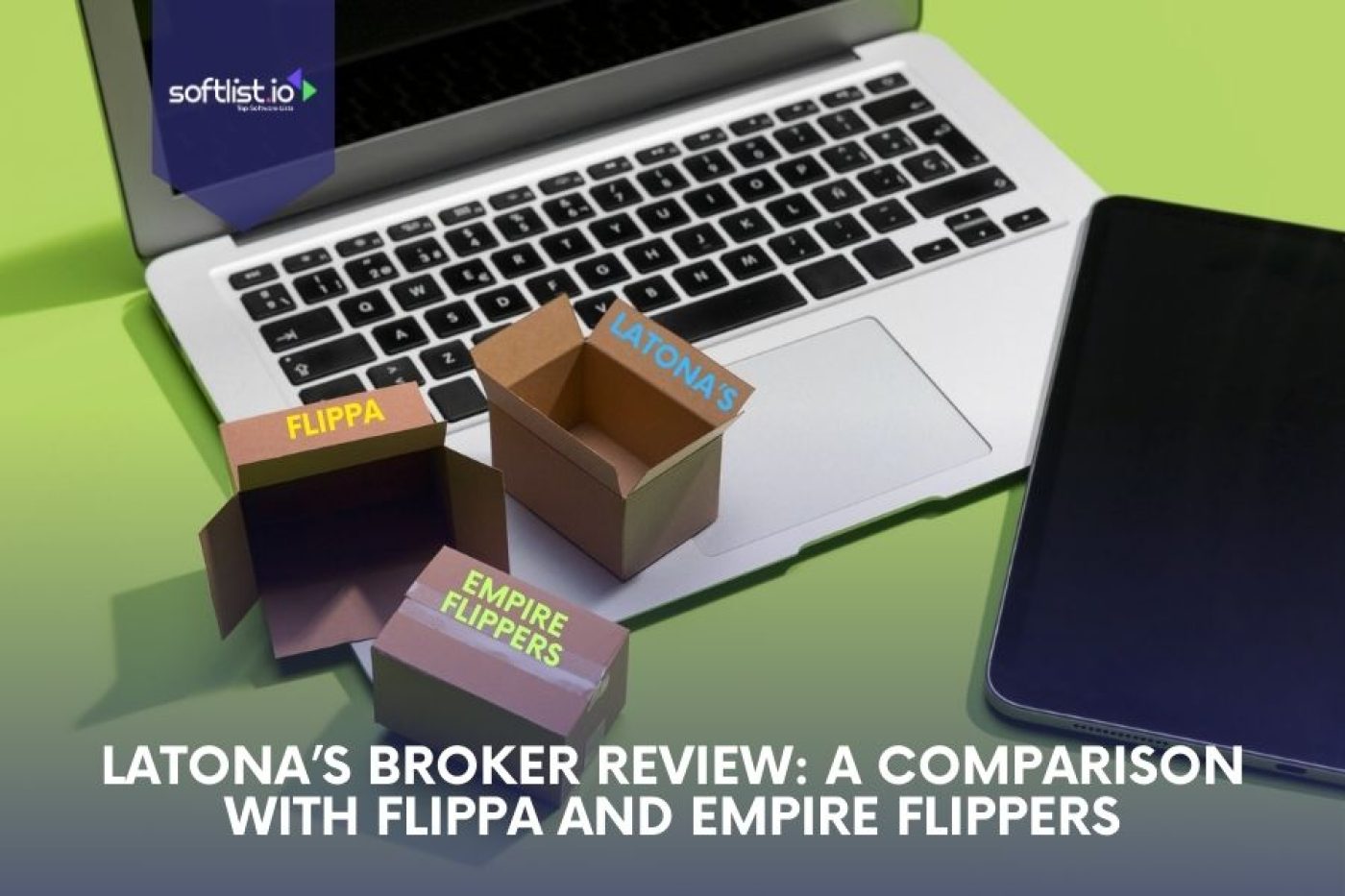More and more, digital deals and data exchanges are being used in retail, which makes safe file transfers very important. The Secure File Transfer Protocol (SFTP) is a safe way to send files between networks.
It keeps private data safe from people who shouldn’t have access to it. This piece talks about the main benefits of using SFTP in retail and explains how it works and why it’s good. You’ll also find tips on how to use SFTP successfully.
Read on to learn why SFTP is the best way for stores to send and receive files securely and how it can protect your business. In the next part, we’ll talk more about how SFTP works and what its benefits are.
Key Takeaways
- Enhanced Security with Encryption: SFTP uses encryption to secure file transfers, protecting sensitive retail data such as customer information, payment details, and inventory records from unauthorized access and cyber-attacks.
- Reliance on SSH Protocol: SFTP relies on the SSH protocol for establishing secure connections between clients and servers, ensuring that data remains encrypted and protected during transfer.
- Automation and Efficiency: SFTP supports automated secure file transfers, reducing human error and accelerating data transfer processes, which is crucial for maintaining operational efficiency in retail.
- Handling Large File Transfers: SFTP is effective in managing large file transfers, essential for retail businesses handling extensive data like high-resolution product images and detailed sales reports, ensuring continuous and reliable data flow.
- Best Practices for Implementation: Setting up and maintaining an SFTP server involves proper configuration, regular updates, use of strong cryptographic algorithms, multi-factor authentication, and regular security audits to ensure a secure file transfer environment.
What is SFTP, and How Does It Work for Secure File Transfers?

Source: Canva Pro
Introduction to Secure File Transfer Protocol
SFTP, also known as the Secure File Transfer Protocol, is a network protocol used to securely transfer files between a client and a server. Unlike FTP, which transmits data in plain text, SFTP uses encryption to provide a secure connection.
This protocol is based on the SSH (Secure Shell) architecture, ensuring that all file transfers are conducted over a secure channel. As part of its encryption mechanism, SFTP can thwart eavesdropping, man-in-the-middle, and other cyber-attacks, making it a robust choice for sensitive data transfers.
Key Components: SSH, Servers, and Clients
The SFTP protocol relies heavily on the SSH protocol to establish a secure connection between the client and server. The SSH protocol uses cryptographic keys to authenticate connections and encrypt data, ensuring that the information remains secure during the transfer process.
An SFTP server is set up to receive files, while an SFTP client is used to initiate the transfer. This client-server model is fundamental to the operation of SFTP and provides a secure framework for file sharing and file management.
How SFTP Differs from FTP?
While both FTP and SFTP are designed to transfer files between systems, they differ significantly in terms of security. Traditional FTP does not encrypt its traffic, leaving data vulnerable to interception.
In contrast, SFTP encrypts both commands and data, providing a secure FTP solution that protects the integrity and confidentiality of the files being transferred.
Furthermore, the FTP server and client rely on additional protocols like SSL (Secure Sockets Layer) to safeguard data, whereas SFTP merges these capabilities directly within SSH, ensuring a cohesive and secure approach to file transfers.
Why Should Retail Businesses Use SFTP for File Transfer Solutions?

Source: Canva Pro
Advantages of Using SFTP in Retail
Retail businesses handle a considerable volume of sensitive data, including customer information, payment details, and inventory records. By using SFTP, they can ensure that all these data transfers are conducted securely.
The encryption provided by SFTP not only safeguards data in transit but also mitigates the risk of data breaches and cyber-attacks. Furthermore, SFTP’s standard file transfer protocols streamline operations, improving the efficiency and reliability of data exchanges within the retail environment.
Ensuring Secure File Transfers in Retail Operations
Secure file transfers are crucial in retail operations to maintain customer trust and comply with regulatory standards. SFTP provides a secure file transfer method that encrypts data, ensuring that sensitive information remains protected during transmission.
The use of SSH keys for authentication further enhances the security, making it difficult for unauthorized users to access the data. By integrating SFTP into their file transfer solutions, retail businesses can significantly reduce the risk of data breaches and unauthorized access, thus fortifying their file transfer protocols.
Overcoming Common FTP Challenges with SFTP
Traditional FTP protocols often expose files to various security vulnerabilities due to their lack of encryption. Retail businesses can overcome these challenges by adopting SFTP, which ensures that all data transferred is encrypted and secure.
Additionally, SFTP’s use of a secure sockets layer (SSL) within the SSH framework provides a more robust security model than FTP. By leveraging SFTP, retail operations can mitigate risks associated with data interception, and unauthorized access, and ensure compliance with data protection regulations.
How Can SFTP Help in Managed File Transfer Scenarios?

Source: Canva Pro
Simplifying Large File Transfers
SFTP is particularly effective at handling large file transfers, a common requirement in retail for data such as high-resolution product images, extensive inventory lists, or detailed sales reports. The protocol’s ability to resume interrupted transfers and its efficiency in handling large data sets make SFTP an ideal solution for these scenarios.
By employing SFTP, retail businesses can ensure the continuous and reliable transfer of large files, thereby maintaining the smooth operation of their digital workflows.
Integrating SFTP into Managed File Transfer Systems
Managed file transfer (MFT) solutions are designed to streamline and secure the transfer of data across organizations. Integrating SFTP into these systems enhances their capability to securely transfer files, offering end-to-end encryption and robust authentication methods.
This integration ensures that sensitive retail data is protected at all stages of the transfer process, from initiation to completion. Retailers can benefit from the combination of MFT systems and SFTP by improving the security and efficiency of their file transfer operations.
Automated Secure File Transfers in Retail
Automation is a critical component of modern retail operations, facilitating the seamless transfer of data without manual intervention. SFTP supports automated secure file transfers, allowing retail systems to securely process and exchange data round-the-clock.
By automating these processes, retailers can reduce human errors, accelerate data transfers, and ensure that sensitive information is always transmitted securely. This level of automation is essential for maintaining the operational efficiency and security of large-scale retail environments.
What Are the Best Practices for Setting Up an SFTP Server?

Source: Canva Pro
Configuring Your SFTP Server
Proper configuration of an SFTP server is vital for ensuring secure file transfers. The configuration process includes setting up the SSH server, generating and managing SSH keys, and defining access permissions.
It is essential to regularly update the server software to protect against vulnerabilities and to configure firewalls to allow legitimate SFTP traffic while blocking unauthorized access. Retail businesses must ensure that their SFTP servers are correctly configured to maintain a secure file transfer environment.
Choosing the Right Port: Why Port 22 is Often Used
Port 22 is commonly used for SFTP connections because it is the default port for SSH communications. Using Port 22 helps streamline the setup and ensures compatibility with most SFTP clients and systems.
While it is possible to configure SFTP to use a different port, utilizing Port 22 simplifies the configuration process and reduces the risk of connection issues. Nonetheless, some retail businesses may choose to use a different port to enhance security, provided they adequately manage the associated logistical considerations.
Security Measures for SSH File Transfer Protocol
Securing SSH file transfer protocol involves several measures, including the use of strong cryptographic algorithms, implementing multi-factor authentication, and regularly rotating SSH keys. Employing secure protocols ensures that SFTP connections are less vulnerable to cyber-attacks.
Additionally, monitoring logs for unusual activities and conducting regular security audits are crucial practices to maintain a secure SFTP environment. These measures collectively help in providing a secure file transfer experience, crucial for protecting sensitive retail data.
Which SFTP Clients and Tools are Most Effective for Retail?

Source: Canva Pro
Recommended SFTP Clients for Windows
Windows users have access to several effective SFTP clients, including WinSCP, FileZilla, and Cyberduck. These clients offer a user-friendly interface, advanced security features, and robust support for automated transfers, making them suitable for retail operations.
WinSCP, for instance, provides extensive scripting capabilities, while FileZilla supports resume functionality for interrupted transfers. Choosing a reliable SFTP client is essential for ensuring seamless and secure file transfers in a retail environment.
SFTP Client Features Beneficial for Retail Use
Key features of SFTP clients that benefit retail use include support for large file transfers, automation, and robust encryption methods. SFTP clients should also offer features like synchronization, real-time monitoring, and integration capabilities with other retail software systems.
Enhanced logging and reporting features are beneficial for auditing and compliance purposes, ensuring that all file transfer activities are tracked and documented accurately. These features collectively contribute to the secure and efficient management of file transfers within the retail industry.
Integrating SFTP Clients with Your Retail Operations
The integration of SFTP clients with retail operations involves configuring them to work seamlessly with existing retail management systems and workflows. This integration allows for the automated exchange of data between different systems, such as inventory management, sales processing, and customer relationship management (CRM) systems.
By leveraging SFTP clients, retailers can enhance their operational efficiency, ensure secure data transfers, and maintain a high level of data integrity across their operations.
Final Thoughts
In the online business, SFTP is a must-have tool for sending files securely. SFTP protects private data like customer information and payment records by securing it and using the strong SSH protocol. Having the ability to handle big files and set up automatic transfers quickly makes operations run more smoothly and with fewer mistakes.
To keep a setting safe while using SFTP, servers must be properly configured, software must be updated regularly, and strong security measures must be in place. There are many reliable SFTP clients available, so implementing this protocol in retail operations can greatly improve data protection and make tasks easier.
SFTP can help you keep your retail business safe and running smoothly.
Take charge of the way you send files today. Check out our other thorough guides on the services that will help you keep your files secured and start protecting your data right away.
Check out our Deals and Offers page for great business deals, and don’t forget to read our Product Reviews page for our top 10 product picks!
FAQs
What is the Most Secure File Sharing?
The most secure file sharing involves using managed file transfer solutions that provide secure file transfer capabilities with encryption and secure authentication. These solutions ensure that files are securely transferred over the internet, providing a reliable file transfer process.
How do I Share Files Securely with Clients?
Use a secure file transfer service like SFTP, which uses secure shell encryption to provide secure access and transfer sensitive data. This protocol ensures the entire file transfer is secure and encrypted, making it a reliable way to transfer large files.
What is a Secure File Sharing Service?
A secure file sharing service, such as an SFTP client and server setup, uses secure shell (SSH) encryption to ensure secure file transfers. These services provide secure file transfer solutions that protect data during transit, offering a secure alternative to traditional file transfer methods.
How do Businesses Share Files?
Businesses often use managed file transfer solutions to provide secure file transfer capabilities, allowing for the secure transfer of sensitive data. These solutions include scalable file transfer software that ensures secure and encrypted file transfer processes.
Is SFTP Safer Than Email?
Yes, SFTP is safer than email because it uses SSH encryption to provide secure file transfers, whereas email is an insecure protocol for transferring sensitive data. SFTP ensures secure authentication and a protected file transfer system, making it a more secure method for sharing files.





